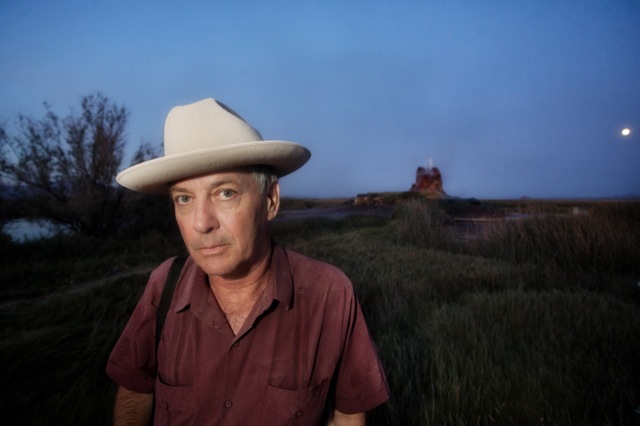The controversial mid-Market tax break proposal was proposed to keep Twitter from making good on threats to leave San Francisco, but city officials have also touted how it would help another iconic cultural institution: Burning Man. Yet unlike Twitter, Burning Man wants to be in the mid-Market area with or without a tax break, says founding board member Larry Harvey.
“We are determined to move into the mid-Market area,” said Harvey, whose organization has been negotiating a lease with landowner David Addington to move into Warfield Building, but they couldn’t seal the deal and so Harvey said they’re now in talks with the owner of another building that he wouldn’t identify (except to say that it was not the SF Mart building targeted by Twitter).
Black Rock City LLC, the company that stages Burning Man, has been seeking a high-profile headquarters in San Francisco for years, as I’ve reported in the Guardian and my new book, The Tribes of Burning Man: How an Experimental City in the Desert is Shaping the New American Counterculture. The idea has been to finally take a culture that has been developing in the desert and cities around the world for 25 years and apply its values, art, and energy to a year-round urban setting in the city where the event was born and has been headquartered ever since.
“We are a city out there in the desert and we’d like to apply some of our ideas to a real life city,” Harvey said of Black Rock City, a temporary town about 50,000 that blooms in Nevada’s Black Rock City for a week in late summer every year. “We want to see how our vision of urbanism can be applied to our hometown.”
Officials from the Mayor’s Office of Economic and Workforce Development have been working with BRC to help it find a new space after it was forced to leave Mission Bay by the UC’s hospital construction project. The company, with about two dozen full-time employees, has been in a cramped and hidden office space near 3rd Street and Evans ever since.
“The city has been telling us and proving it with their actions that they really want us down there,” Harvey said. In addition to helping with property leads, the city has also helped BRC seek out grants that might help with the move.
In turn, Jennifer Matz of the OEWD has been quoted in other publications as using Burning Man’s interest as a selling point to keep Twitter in town, touting the creative energy that the pair of companies could bring to mid-Market. Matz is out of the office this week and did not return a call.
Harvey said he’s supportive of the tax break proposal, which would exempt companies from paying payroll taxes on new hires for six years. “We think our staff is going to grow, so it would be good for us,” Harvey said. Yet he said that he was sensitive to concerns about how an influx of new companies might impact one of the city’s poorest neighborhoods.
“We don’t want to be the shock troops for gentrification,” Harvey said.”We’d like to have a voice in that community to make sure that doesn’t happen.”
Harvey said he thinks the proposal would help the neighborhood, although he also said that’s not his area of expertise. But he does know about facilitating art and culture, and he thinks that Burning Man – with its values on self-expression, community collaboration, and a decommodified gift economy – could have a positive impact on the neighborhood.
“If we can get a foothold down there, those are the values that we would demonstrate. We’re nobody’s window dressing and we never will be,” Harvey said. “We want to find common cause with the resident population. We know what it’s like to break into a community and win people’s trust.”
This is poised to be a big transitional year for Burning Man. Beyond finding a new headquarters, BRC is about to announce the creation of a new nonprofit entity that will be groomed to take over Burning Man and related projects in the coming years.

